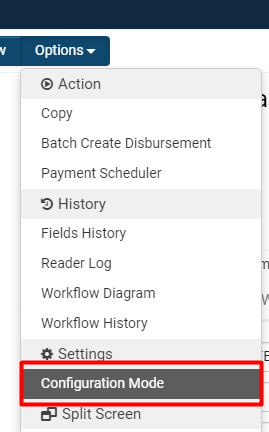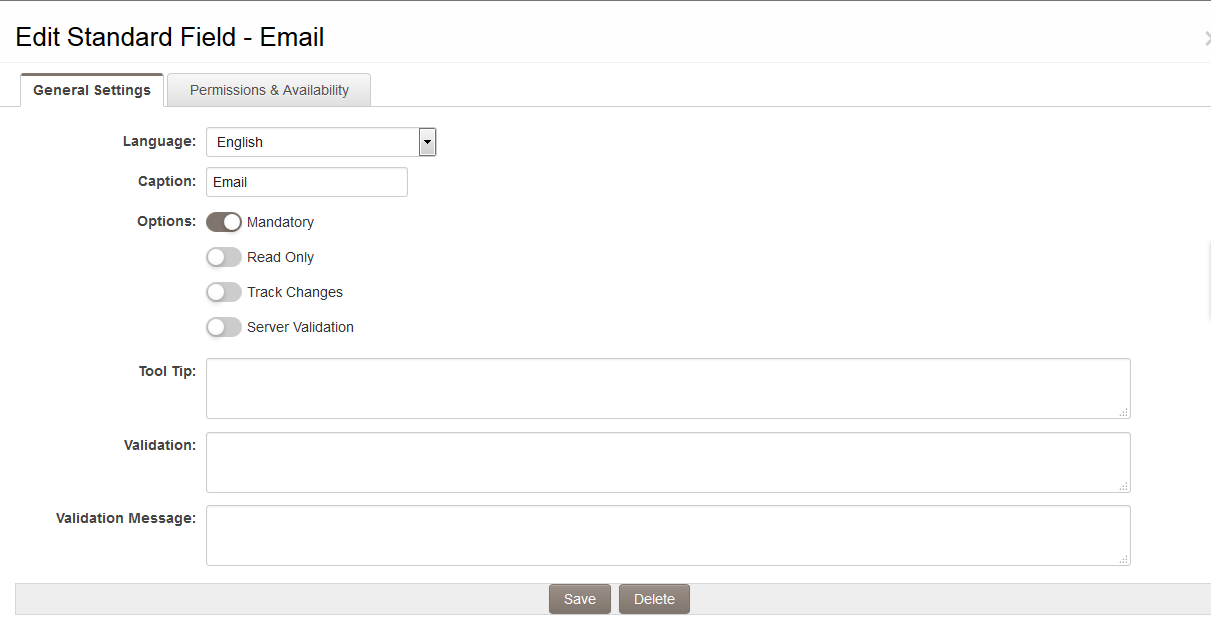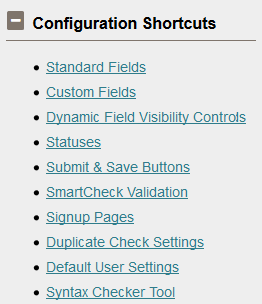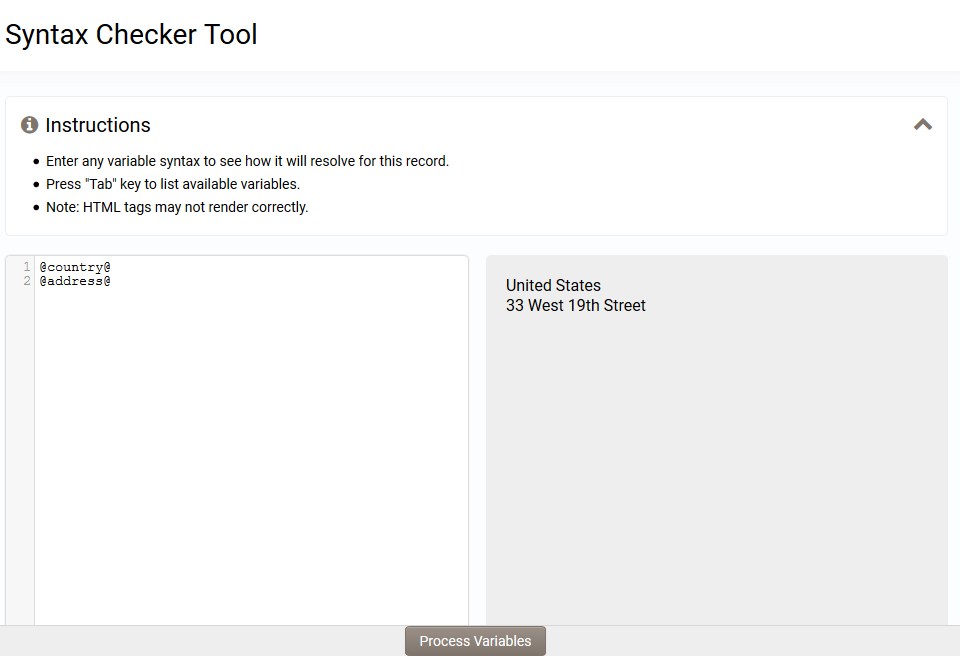Difference between revisions of "Configuration mode"
(→Configuration Shortcuts / Syntax Checker) |
|||
| Line 41: | Line 41: | ||
When the '''Configuration Mode''' icon is clicked in Edit mode, the '''Configuration Shortcuts''' section also appears on the right side of the screen. | When the '''Configuration Mode''' icon is clicked in Edit mode, the '''Configuration Shortcuts''' section also appears on the right side of the screen. | ||
| − | :: [[Image:ConfigShortcut.png| | + | :: [[Image:ConfigShortcut.png|200px|border]] |
It includes links to many of the General Settings specific to the entity you are currently accessing. | It includes links to many of the General Settings specific to the entity you are currently accessing. | ||
| Line 51: | Line 51: | ||
:* Enter variable syntax in the panel on the left hand side of the '''Syntax Checker Tool''' page. | :* Enter variable syntax in the panel on the left hand side of the '''Syntax Checker Tool''' page. | ||
:*:* '''NOTE:''' Press "Tab" key to see available keywords | :*:* '''NOTE:''' Press "Tab" key to see available keywords | ||
| + | |||
:* Press "Process Variables" button. | :* Press "Process Variables" button. | ||
:* Results appear in the grey panel on the right hand side of the '''Syntax Checker Tool''' page. | :* Results appear in the grey panel on the right hand side of the '''Syntax Checker Tool''' page. | ||
Revision as of 15:17, 3 June 2019
Contents
[hide]Overview
Configuration Mode is an option available to all Administrators within the system. Configuration Mode provides an easier mechanism for accessing and editing fields, as well as other configuration shortcuts. Admins can access the configuration from within a record.
Users without an Administrator role are unable to use Configuration Mode.
Configuration Checklist
The following checklist defines a sequence that you should consider when setting up your copy of SmartSimple prior to giving people access to the system:
- Configure Organization Settings - set colour scheme, licensing, backup and terminology.
- If required, define the custom fields required for organisations – add the fields you need to accurately reflect your business.
- Create or upload organization information for both internal and external organizations – add organization information to the system.
- Define roles for people – add the roles people play in the business to accurately reflect your business.
- Define any custom fields for roles – add the fields you need to accurately reflect the roles people play in business.
- Define or upload "people" - internal or external organizations – add people to the system.
- Subscribe to SmartSimple applications – determine the applications required by each group of people.
- Give Manager Permission to specific roles – determine which groups of people are responsible for each application and feature.
Using Configuration Mode
To get into Configuration Mode, the Administrator must first be in Edit Mode.
1. After accessing any record, there will be an Edit button that takes you into Edit Mode.
2. Select the Options button, which will produce a drop-down menu.
3. Under Settings, select Configuration Mode.
There will be a small tab at the top of the page to indicate you are in Configuration Mode, with a Refresh and Close icon.
Then, when you scroll over the fields on the record, they will be highlighted and can be clicked on.
When a field is clicked, a modal window opens with the configuration page for that field. Changes can be made and saved, and will appear against the field once the page has been refreshed.
Configuration Shortcuts / Syntax Checker
When the Configuration Mode icon is clicked in Edit mode, the Configuration Shortcuts section also appears on the right side of the screen.
It includes links to many of the General Settings specific to the entity you are currently accessing.
It also includes a link to the Syntax Checker. This feature allows administrators to test Variables syntax and Type Formulas against actual records.
-
- Click on the link to the Syntax Checker.
- Enter variable syntax in the panel on the left hand side of the Syntax Checker Tool page.
- NOTE: Press "Tab" key to see available keywords
- Press "Process Variables" button.
- Results appear in the grey panel on the right hand side of the Syntax Checker Tool page.






